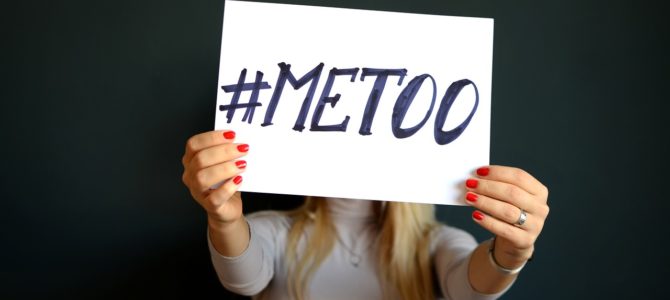Does everyone deserve a second chance? It’s a timely question. Jews worldwide have begun repenting in the run-up to the High Holidays. Catholics are grappling with another massive abuse scandal among the church’s leadership, and some powerful men dethroned by the Me Too movement have already begun working on their own comebacks.
Jennifer Wright writes in Harper’s Bazaar:
Al Franken is considering a return to politics after being caught on camera groping a woman and being accused of harassment by half a dozen others. Matt Lauer is supposedly also aiming for a return to television and his co-workers believe that ‘a comeback is possible.’ Charlie Rose is planning to host a show where he interviews men ‘brought down’ by the #MeToo movement. I can only imagine this will be to indicate that you can sexually harass eight women and not be ‘brought down’ to a point where you stop hosting TV shows.
The American public must ask: Should we forgive these public figures, and if so, on what terms? These aren’t easy questions.
Personally, I wouldn’t want Al Franken representing me anywhere in government. I’d also avoid watching any show starring either Matt Lauer or Charlie Rose — especially one that glamorized the “fallen” men of Me Too — and hope network honchos recognize that in addition to being morally gross, neither man is an irreplaceable talent. In fact, I’d recommend casting talented women in place of both men; cosmic justice requires it.
As for the other scandal-tainted men Wright mentions in her article, I can’t believe Brock Turner tried to appeal his minor punishment claiming he “had sought only ‘outercourse’” with an unconscious woman. Or that anyone casts Mel Gibson in movies, given that he still doesn’t sound sorry for his famous anti-Semitic tirade, racist, and homophobic comments, or for hitting his daughter’s mother. At this point, I’d happily avoid both of those men forevermore as well.
Of course, one might ask whether I shouldn’t applaud others’ interest in helping these men put their lives and careers back on track. After all, this Jew has often lamented the end of Christian America on this score.
What do I mean by that? Simply that Americans used to widely believe in hating the sin but loving the sinner, as well as offering second chances and practicing mercy and allowing for redemption. In our post-Christian era, those virtues associated with kindness and empathy have been sidelined. Now we are more likely to see online mobs shaming and ruining strangers’ lives, all of which seems like backward progress, if ever there were.
Public shaming and marginalization have recently been applied too widely, but that doesn’t mean they’re inherently bad notions. In fact, there are people who behave so heinously that sidelining them from polite society is the most rational response.
My grandmother, a social worker, often talked about the importance of forgiveness and letting go of anger, lest it poison you. I believe there’s something to that. However, it’s one thing to forgive someone who’s apologized earnestly and taken steps to noticeably change himself. It’s another if the offender has done neither. Then what are we forgiving?
In the case of public figures, there’s also no real case to be made for “letting go,” since the odds any of these aforementioned men will play a large or direct role in any of our lives are miniscule. Our interactions are less personal than they are distant, symbolic, and economically oriented.
Jewish sage Maimonides wrote in Teshuvah 1:1, “Similarly, one who injures a colleague or damages his property, does not attain atonement, even though he pays him what he owes, until he confesses and makes a commitment never to do such a thing again.’” In other words, from a Jewish point of view, there must not only be a confession, but also remorse and a real commitment to change one’s behavior going forward. So, for example, Harvey Weinstein trying to distract from accusations of rape and sexual assault by announcing he would take on the National Rifle Association doesn’t fly, Jewishly speaking.
Forgiveness is a powerful force. But without real change, it’s also meaningless, which is why standards are crucial.
A society that accepts any behavior is a society in decline. It’s important that we fight that, starting with an insistence that those who rape, assault, or harass others are required to repent and sincerely apologize to those they have harmed before being welcomed back into the heart of society. Otherwise, not only will American society be maximally brutish and crude, but the victories claimed by the Me Too movement will have been hollow.









